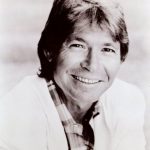“𝘿𝙤𝙣’𝙩 𝙔𝙤𝙪 (𝙁𝙤𝙧𝙜𝙚𝙩 𝘼𝙗𝙤𝙪𝙩 𝙈𝙚)”-𝙎𝙞𝙢𝙥𝙡𝙚 𝙈𝙞𝙣𝙙𝙨’

“Don’t You (Forget About Me)” is one of Simple Minds’ most iconic songs, released in 1985. The track was written by producer Keith Forsey and Steve Schiff specifically for the soundtrack of the John Hughes film The Breakfast Club, a coming-of-age classic that became synonymous with 1980s pop culture. The song’s powerful blend of new wave and rock elements helped it reach No. 1 on the Billboard Hot 100, making it the band’s most commercially successful single.
Musically, “Don’t You (Forget About Me)” features a driving beat, lush synth layers, and a catchy, anthemic chorus that makes it instantly recognizable. Jim Kerr’s vocals are emotional and commanding, capturing a mix of defiance and longing. The song’s infectious, soaring melody is punctuated by atmospheric guitar work and a pulsating bassline, giving it a sense of grandeur and intensity. Its chant-like chorus, “Don’t you forget about me,” evokes a powerful emotional plea, making the song feel both personal and universal.
Lyrically, the song speaks to themes of identity, connection, and the desire to be remembered. The lyrics convey a sense of longing, urging someone not to forget about the narrator after parting ways. In the context of The Breakfast Club, the song reflects the film’s themes of adolescence, self-discovery, and the hope that fleeting relationships formed in high school might leave a lasting impact.

Despite initially being hesitant to record the track, Simple Minds embraced it and delivered a performance that became an integral part of their career. The song’s popularity skyrocketed following the success of The Breakfast Club, and it became a defining anthem of the 1980s. The music video, directed by Daniel Kleinman, features the band performing in a dark, empty theater, with shots of Jim Kerr passionately singing into the camera, further emphasizing the song’s emotional core.
“Don’t You (Forget About Me)” remains one of Simple Minds’ signature songs, and it continues to be a staple of 1980s nostalgia. Its placement in The Breakfast Club helped solidify its place in popular culture, and its timeless appeal has allowed it to endure well beyond the decade in which it was released. The track’s emotional depth, unforgettable chorus, and cinematic association make it a lasting symbol of the 80s.











